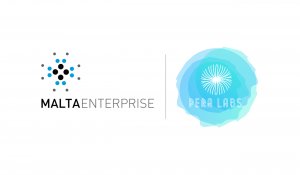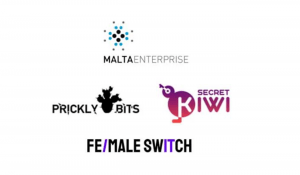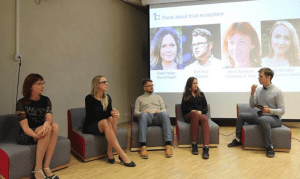There is no doubt that the current COVID-19 pandemic has had a dramatic impact not only in Malta but around the world. It arrived one century after the 1918 influenza pandemic that infected around 500 million people – roughly one third of the world’s population at the time. And of those, as many as 50 million people died. Medical science has improved dramatically since then and thankfully, only a fraction of that number are likely to lose their lives during the current pandemic. But a very large number of people have lost their jobs. What can be done to help?
Well, many people have recently expressed an interest in becoming self-employed and to start their own business. That may be one option for some, but does that not carry a lot of risk? Well the truth is that without realising it, everyone in the world of work already runs their own business. But surely that statement is not true? Well, believe it or not, it really is true…
In business there are only two things that you can sell: a product or a service. If you sell (usually a service) to a single customer, then you are called an employee. If you sell to more than one customer, then you become an employer (either self-employed or running a business team). It really is that simple. Employees agree to provide their services exclusively to one customer (the employer) for a fixed rate under the terms of a Contract of Employment. The employer handles the tax affairs of the employee and undertakes the activities needed to find work for the employee to do. But if the employer cannot find work for the employee – as has happened so often during the pandemic – then the employment is usually terminated.
Becoming self-employed means that you must find your own customers and be responsible for your own tax affairs. On the latter point, always engage an accountant to do that for you. On the first point, you must think carefully about what products and services you could sell based upon your know-how. But do not jump into starting a new enterprise on the assumption that customers will want to buy what you have to offer. Far better to look at problems that potential customers have and how you can solve those with your products and/or services. That will mean talking to potential customers and looking at what potential competitors already offer.
The key thing is to work out the projected finances to ensure (as far as you are able) that your new venture can generate more income than expenditure; in other words, make a profit. If not, you would have to cease trading. Most businesses need start-up finance – perhaps to buy equipment or raw materials. And few new ventures sell very much in the first few months. Planning all of this is a daunting task. But that is where TAKEOFF, the University of Malta’s business incubator, and Malta Enterprise can help. Under a new collaboration, TAKEOFF can help anyone in Malta with advice about a new business venture. The TAKEOFF website contains over 50 short videos that explain how to plan out your new venture. Malta Enterprise offers a range of Start-Up funding initiatives to help get started. Even better, this collaboration allows access for anyone receiving start-up funding to access TAKEOFF’s accredited monthly mentoring service.
So if you are considering self-employment or a new business venture, make sure that you speak with TAKEOFF first. Details are on its website (https://takeoff.org.mt/) and its accredited mentors will help you make your case to Malta Enterprise for start-up funding.
Text Copyright 2021 Prof Russell Smith.
Non-exclusive licence granted to Malta Enterprise for free use of the unedited text.




